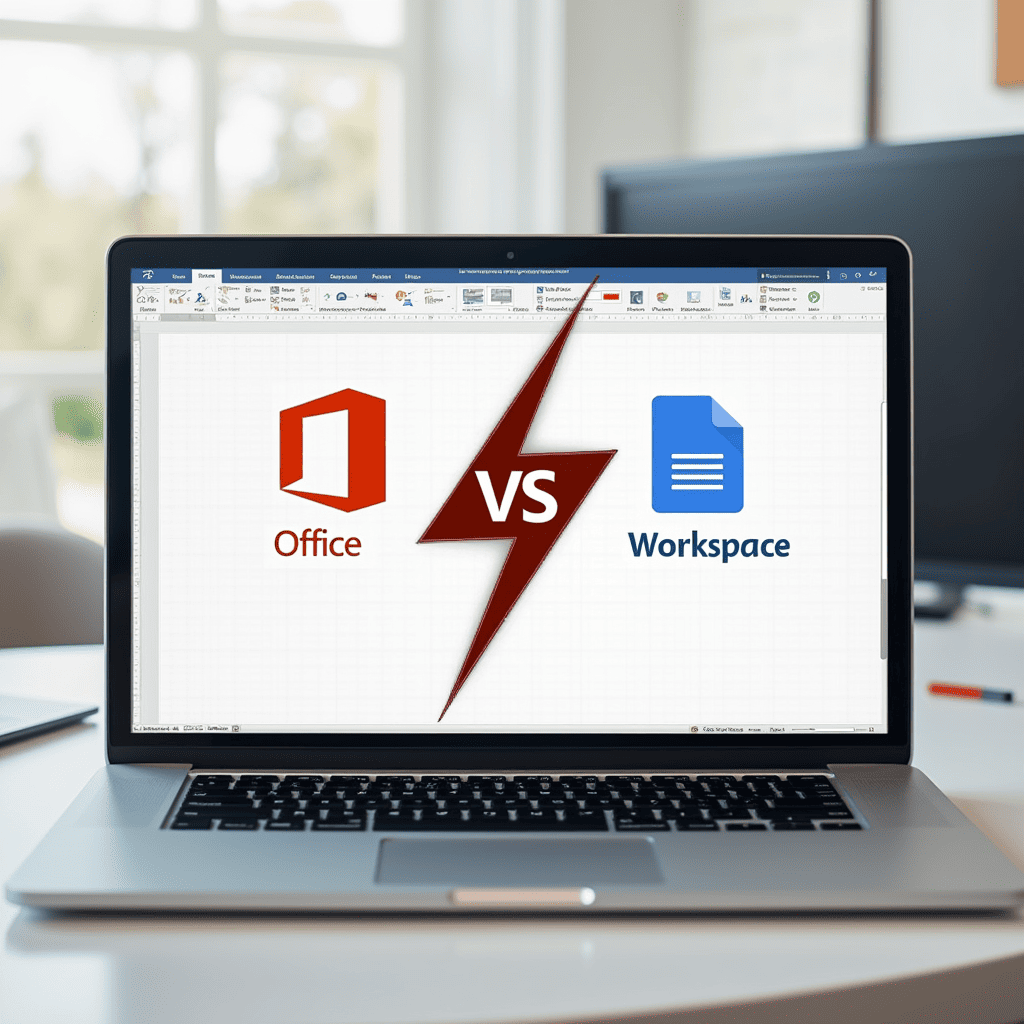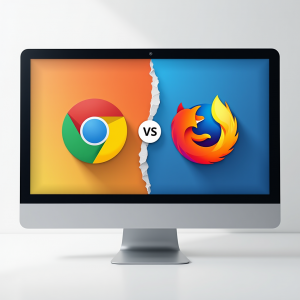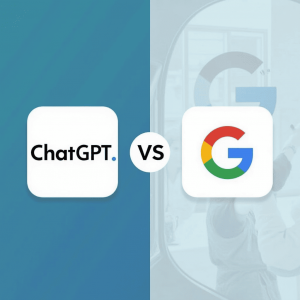
In today’s digital workplace, choosing the right productivity suite can significantly impact your efficiency, collaboration capabilities, and budget. Microsoft Office has been the industry standard for decades, while Google Workspace (formerly G Suite) has emerged as a powerful cloud-native alternative.
This comprehensive guide will help you navigate the Microsoft Office vs. Google Workspace debate, examining their strengths, weaknesses, and ideal use cases to determine which productivity powerhouse aligns best with your needs.
Productivity Suite Basics
What Makes a Great Productivity Suite?
A comprehensive productivity suite should offer:
- Word processing capabilities
- Spreadsheet functionality
- Presentation tools
- Email and calendar integration
- Collaboration features
- Cloud storage
- Cross-device accessibility
Microsoft Office: A Comprehensive Overview
Pros of Microsoft Office
- Feature-Rich Applications: Unmatched depth of functionality
- Desktop-First Experience: Powerful offline capabilities
- Familiar Interface: Industry standard for decades
- Enterprise-Grade Security: Advanced protection features
- Extensive Integration: Works with numerous third-party tools
Cons of Microsoft Office
- Higher Cost: More expensive licensing model
- Steeper Learning Curve: More complex interface
- Real-Time Collaboration Limitations: Less seamless than Google
- Desktop Focus: Web versions less robust than desktop
Google Workspace: The Cloud-Native Alternative
Pros of Google Workspace
- Superior Real-Time Collaboration: Best-in-class sharing and co-editing
- Cloud-First Approach: Accessible anywhere with internet
- Simple, Intuitive Interface: Easy learning curve
- Automatic Saving: No manual saves required
- All-Inclusive Pricing: Clear subscription model
Cons of Google Workspace
- Feature Limitations: Fewer advanced features
- Internet Dependency: Limited offline functionality
- Less Robust Formatting: Not as powerful for complex documents
- Platform Lock-in: Heavily tied to Google ecosystem
Detailed Feature Comparison
Core Applications Comparison
| Application Type | Microsoft Office | Google Workspace |
|---|---|---|
| Word Processing | Word (Advanced features) | Docs (Simplified, collaboration-focused) |
| Spreadsheets | Excel (Powerful calculation) | Sheets (User-friendly, limited complex functions) |
| Presentations | PowerPoint (Extensive design options) | Slides (Simplified, easy sharing) |
| Email Client | Outlook (Comprehensive) | Gmail (Clean, AI-enhanced) |
| Cloud Storage | OneDrive (Well-integrated) | Google Drive (Seamless integration) |
Collaboration Features
Microsoft Office Advantages
- Track changes in documents
- Rich commenting features
- Tight integration with Teams
- Advanced permissions management
- Co-authoring capabilities
Google Workspace Advantages
- Real-time editing visibility
- Seamless sharing
- Built-in chat functionality
- Comment resolution system
- Version history tracking
Pricing Comparison
Microsoft Office vs Google Workspace Pricing Comparison
| Plan Type | Microsoft Office | Google Workspace |
|---|---|---|
| Basic/Personal | Microsoft 365 Personal: $6.99/month | Business Starter: $6/user/month |
| Standard/Business | Microsoft 365 Business Standard: $12.50/user/month | Business Standard: $12/user/month |
| Premium/Enterprise | Microsoft 365 Business Premium: $22/user/month | Business Plus: $18/user/month |
Who Should Choose Microsoft Office?
Microsoft Office is ideal for:
- Businesses requiring advanced document formatting
- Financial professionals working with complex spreadsheets
- Enterprise environments with security compliance needs
- Users who frequently work offline
- Organizations already invested in Microsoft ecosystem
Who Should Choose Google Workspace?
Google Workspace is perfect for:
- Teams prioritizing real-time collaboration
- Small to medium businesses seeking cost-effective solutions
- Organizations working primarily online
- Companies valuing simplified IT management
- Teams requiring constant document accessibility
External Resources
Frequently Asked Questions
Q: Can I use Microsoft Office and Google Workspace together? A: Yes, both platforms offer integration options, allowing users to edit Office files in Google and vice versa.
Q: Which offers better mobile apps? A: Both offer quality mobile experiences, though Google’s apps tend to be more streamlined for mobile-first usage.
Q: Which has better data security? A: Both offer enterprise-grade security, with Microsoft having more granular control options and compliance features.
Conclusion
There’s no one-size-fits-all answer to the Microsoft Office vs. Google Workspace debate. Your ideal choice depends on your specific needs, existing technology ecosystem, collaboration requirements, and budget.
Microsoft Office excels in feature depth and offline capabilities, while Google Workspace stands out for collaboration and cloud accessibility.













